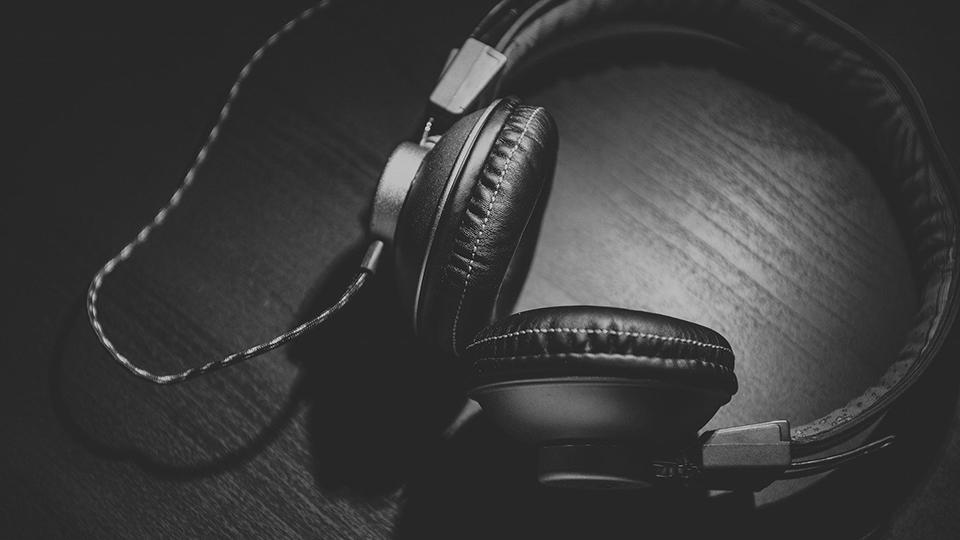Artists drive our music download choices
Primary page content
The decision to download music to our portable devices is made based on factors which are mostly outside the musical content of a track, new research led by Goldsmiths, University of London suggests.

Music is heard between 44-68% of people’s waking hours on average, accompanying activities from travel to eating, exercise and study. While some music is forced upon us in work and leisure spaces, researchers set out to explore how people choose what individual music they carry with them.
The research team, led by Katie Rose Sanfilippo and comprising researchers from four different UK universities, asked nearly 400 people to put their phone or laptop music player (such as Spotify) on shuffle mode, then answer questions about the first two tracks which played. Participants used these two songs as prompts for reflecting on why they downloaded and kept the songs.
While the most popular answer was ‘because I like it’, participants also talked a considerable amount about the informational context around a piece – the artist, album, or genre – rather than the music content of the track itself.
After ‘because I like it’, the artist was the second-most frequently-raised factor, showing the relationship listeners have with particular artists when describing and making judgements about music. Prior research from Goldsmiths has shown that the perceived prestige of the artists of a track can change the judgements people make about the same musical pieces.
Katie Rose Sanfilippo, PhD researcher in the Department of Psychology at Goldsmiths, said: “People’s feelings towards the artist and the informational context around a track can drive their discussion of the music, their preferences for it and whether or not to download and listen to it.
“The importance of specific people can also be seen in classical music, as canonical composers have dominated music history, concert platforms and societal preferences for centuries. Our study provides a similar result which supports this idea: that people prioritise the artist not just when judging but also when talking generally about music.”
“Very few research studies acknowledge the complex relationship between preference for an artist and preference for a particular piece of music in terms of everyday music listening experiences.”
In their analysis of survey results, the researchers recorded 301 incidences of people associating tracks with an activity e.g. ‘I enjoy calm solo piano music to either read or sleep to’ or a person (201 incidences), e.g. ‘Reminds me of my boyfriend when he’s away.'
The study found that relatively few people prioritised talking about the emotions music can evoke when discussing their randomly-selected tracks. They described the track, characterising what they like and do not like about it, and said what it reminded them of before, before they described how it makes them feel.
Highlighting the imaginative and creative nature of music listening, participants often told brief evocative stories about the tracks, such as ‘I picture a dark club with red lights that flicker through the club’ or ‘I feel I am at a classic bar or lounge where I am smoking a Cuban cigar and sipping a drink with my friends.’
Study co-author Neta Spiro from the Royal College of Music, said: “In our culture it is common to distinguish between trained musicians and those that are not trained. But in our study we saw a high level of musical sophistication in the general population. This can be seen in the vast range in musical features and the expressive words highlighting the richness of music description of music listeners today: music was described as ‘bouncy’, ‘melancholy’, ‘vivacious’ or ‘ploddy dirgey’, for example.”
“It might seem obvious that people download and keep music because they like it, but studies such as this which explore preferences and rationale in more depth could have implications for future work in understanding music, how it is used, and its functions in our everyday life.”
A research paper, published in the journal PLOS ONE, is accompanied by an interactive website where the data, and everything people said about their music, is presented for visitors to explore.
'Do the Shuffle: Exploring reasons for music listening through shuffled play' by Katie Rose M. Sanfilippo, (Goldsmiths, University of London), Neta Spiro (Royal College of Music and Imperial College), Miguel Molina-Solana (Imperial College and University if Grenada) and Alexandra Lamont (Keele University) was published in the journal PLOS ONE on Thursday 6 February 2020.